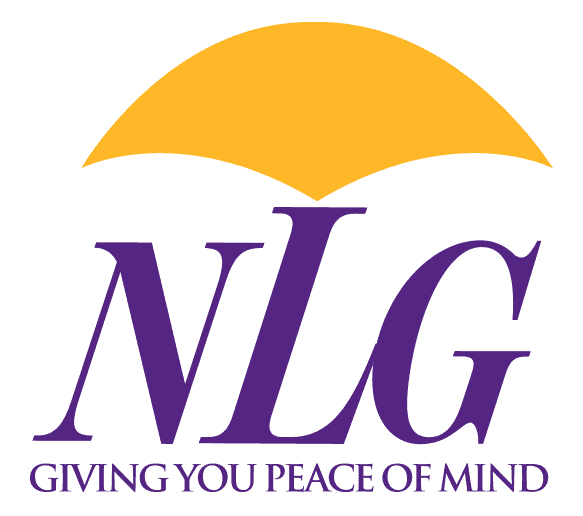
Santa Ana Foreclosure Attorney
Providing Experienced Foreclosure Defense in California
If you’re a homeowner or landlord who has fallen behind on your mortgage, foreclosure is a real and significant threat. However, it’s not a guaranteed outcome – you may have options to address financial constraints, protect your credit, and potentially save your home.
At Nguyen Law Group, our Santa Ana foreclosure defense attorney Andy Nguyen has helped hundreds of individuals and families across Southern California protect their homes and cherished assets through various legal processes – including bankruptcy, loan modifications, short sales, and more. We know these are trying and turbulent times and offer the compassionate guidance clients need to navigate the journey ahead.
Lenders can initiate foreclosure proceedings in as little as three to four months after delinquency, which is why it’s best to take immediate action and speak with our Santa Ana foreclosure attorney. To discuss your foreclosure defense options, call (909) 328-6280 or contact us online.
How Foreclosure Works
Foreclosure is a legal process through which a lender reclaims a property when the homeowner fails to make mortgage payments. Generally, the process works as follows:
- Missed Payments: Foreclosure typically begins when a homeowner falls behind on mortgage payments. Your mortgage agreement likely specifies a grace period after a missed payment, but once that period ends, your lender may initiate foreclosure proceedings.
- Notice of Default (NOD): After a certain number of missed payments, your lender will issue a Notice of Default (NOD), formally notifying you that you're in default on your mortgage. The NOD is a public record, and it marks the official beginning of the foreclosure process.
- Pre-Foreclosure Period: During the pre-foreclosure period, which typically lasts 90 days, you can bring your mortgage current by paying off the overdue amount, negotiating a repayment plan, or pursuing other options to resolve the delinquency.
- Notice of Sale: If you're unable to resolve the default during the pre-foreclosure period, your lender will issue a Notice of Sale, scheduling an auction to sell your home. This notice is typically published in local newspapers and posted on your property.
- Foreclosure Auction: At the foreclosure auction, your home will be sold to the highest bidder, usually for an amount equal to the outstanding loan balance plus any fees and costs incurred by the lender. If no one bids on the property, ownership reverts to the lender, making it a Real Estate Owned (REO) property. After the sale, residents will receive a notice to vacate the property or may face eviction proceedings from the new owner/lender.
Options to Defend Against Foreclosure
While foreclosure can feel inevitable once the process begins, it's important to know that you have rights and options to defend against foreclosure and avoid its damaging consequences:
- Legal Defenses: This involves hiring a lawyer to challenge the foreclosure in court. Legal defenses may allege improper documentation, violations of lending laws, or procedural errors in the foreclosure process. A successful legal defense, while less common than other foreclosure defense strategies, can be an effective way for homeowners to delay foreclosure and find time to explore other options to save their homes.
- Loan Modification: Homeowners can negotiate with lenders to modify the terms of their loans. This could involve reducing the interest rate, extending the loan term, or forgiving a portion of the principal balance. Loan modification aims to make monthly payments more affordable, allowing homeowners to avoid foreclosure and stay in their homes.
- Short Sale: In a short sale, homeowners sell their property for less than the outstanding mortgage balance with the lender’s approval. While it results in the loss of the home, it allows homeowners to avoid foreclosure and the damaging effects it has on credit. Homeowners may also negotiate with lenders to forgive remaining debt after the sale.
- Bankruptcy: Filing bankruptcy under Chapter 13 or Chapter 11 can be a viable way to stop foreclosure sales given that they result in an automatic stay. This temporary halt on collection activities (including the foreclosure process) provides homeowners with time to reorganize their finances and potentially catch up on missed mortgage payments through a court-approved repayment plan. Bankruptcy can also discharge other debts, making it easier for homeowners to afford their mortgage payments and keep their homes. Chapter 7 bankruptcy also temporarily stops foreclosure, but because no payments are made in Chapter 7 cases, homeowners would need to negotiate with foreclosing creditors outside of their bankruptcy case to resolve the matter, which isn’t always possible.
How Our Foreclosure Attorney Can Help You
Here are some of the ways we can assist you:
- Understanding Your Rights: Foreclosure laws can be complex and vary significantly from state to state. We will help you understand your rights as a homeowner, including any defenses you may have against foreclosure. We will inform you about the processes lenders must follow and any potential violations they may commit.
There are often alternatives available that may help you avoid foreclosure entirely. We will discuss options such as:
- Loan Modifications: We can help negotiate with your lender to adjust the terms of your mortgage. This might involve extending the loan term, lowering the interest rate, or even reducing the principal balance.
- Forbearance Agreements: If you are temporarily incapable to make your mortgage payments, a forbearance agreement may allow you to pause or reduce payments for a specified time without entering foreclosure.
- Short Sales: If keeping your home is no longer feasible, a short sale might be an option. With the lender's approval, this involves selling your home for less than what you owe on your mortgage. We will assist you in navigating this process to minimize financial repercussions.
- Representing You in Court: We can represent you in court, working to challenge the foreclosure and explore any legal grounds for defense. We will meticulously review the case against you, looking for any errors or violations that could be leveraged to halt the foreclosure process.
- Negotiating with Lenders: Effective negotiation with lenders is crucial in foreclosure cases. We have a wealth of experience dealing with banks and mortgage companies. We will advocate on your behalf to secure the best possible outcome, whether through a loan modification, repayment plan, or other solutions.
- Providing Emotional Support: Dealing with foreclosure can take an emotional toll. We understand the stress that comes with financial difficulties and the fear of losing your home. We strive to create a supportive environment where you feel comfortable discussing your problems and aspirations. Our goal is to empower you with knowledge and options, giving you the confidence to make informed decisions about your future.
- Handling Bankruptcy Considerations: In some cases, filing for bankruptcy may be an appropriate strategy to address foreclosure. Bankruptcy can deliver immediate relief from creditors and potentially allow you to keep your home while reorganizing your debts. We will discuss the implications of bankruptcy in your specific situation and help you determine whether this is a viable option.
Frequently Asked Questions About Foreclosure Defense
What is foreclosure?
Foreclosure is a legal process where a lender reclaims a property when the homeowner fails to make mortgage payments. This process involves several steps, including missed payments, a Notice of Default (NOD), a pre-foreclosure period, and potentially a foreclosure auction.
Can I stop a foreclosure once it begins?
Yes, homeowners have several options to stop foreclosure, including:
- Negotiating a loan modification
- Pursuing a short sale
- Filing for bankruptcy (Chapter 7 or Chapter 13)
- Asserting legal defenses if there are procedural or legal violations in the foreclosure process
What are common legal defenses against foreclosure?
Legal defenses may include challenging improper documentation, violations of lending laws, or errors in the foreclosure process. An experienced foreclosure attorney can evaluate your case for potential defenses.
How can a loan modification help me?
A loan modification involves negotiating with your lender to adjust the terms of your mortgage, such as reducing the interest rate, extending the loan term, or lowering the principal balance. This can make monthly payments more affordable and help you avoid foreclosure.
What is a short sale, and when is it a good option?
A short sale is when you sell your property for less than the mortgage balance with the lender’s approval. This can help avoid foreclosure and minimize damage to your credit, but it results in the loss of the home.
How does bankruptcy affect foreclosure?
Filing for bankruptcy triggers an automatic stay, temporarily halting foreclosure proceedings.
- Chapter 13 Bankruptcy allows you to reorganize debts and create a repayment plan to catch up on missed mortgage payments.
- Chapter 7 Bankruptcy provides temporary relief but may not allow you to keep your home unless you negotiate with the lender outside the bankruptcy case.
What are my rights as a homeowner during foreclosure?
Homeowners have the right to be properly notified, to contest the foreclosure in court, and to explore alternatives such as loan modifications or repayment plans. Lenders must follow specific legal procedures during foreclosure.
Contact Our Foreclosure Attorney in Santa Ana Today
Nguyen Law Group is an award-winning bankruptcy and estate planning firm that’s helped hundreds of clients address financial problems, protect assets, and pave the foundation for a brighter financial future. With offices in Orange County and the Inland Empire, we proudly serve individuals, homeowners, and families across Southern California.
To request an initial consultation with our Santa Ana foreclosure lawyer, call (909) 328-6280 or complete an online form.

Committed to Our Clients & Our Community
How We Stand Out
-
Affordable & Effective
-
Extensive Legal Knowledge
-
Personal Service & Availability
-
Trustworthy & Reliable


-
Why Hire Us?
We have the experience, skill, and compassion necessary for handling your legal matters. Learn why we are the right choice for you.
-
What We Do
If you have bankruptcy or estate planning matters to discuss, we are the right firm for you. Learn more about how we can help you.
-
Contact Us
Reach out to us today for a consultation to discuss your unique case. Our initial consultations are free!